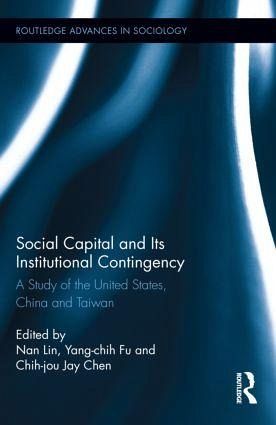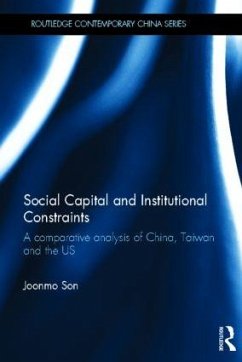
Social Capital and Its Institutional Contingency
A Study of the United States, China and Taiwan
Herausgeber: Lin, Nan; Chen, Chih-Jou Jay; Fu, Yang-Chih
Versandkostenfrei!
Versandfertig in 1-2 Wochen
191,99 €
inkl. MwSt.
Weitere Ausgaben:

PAYBACK Punkte
96 °P sammeln!
This volume is a collection of original studies based on one of the first research programs on comparative analysis of social capital. Data are drawn from national representative samples of the United States, China and Taiwan. The three societies selected for study allow the examination of how political-economic regimes (command versus market) and cultural factors (family centrality versus diverse social ties) affect the characteristics of social ties and social networks from which resources are accessed and mobilized.













